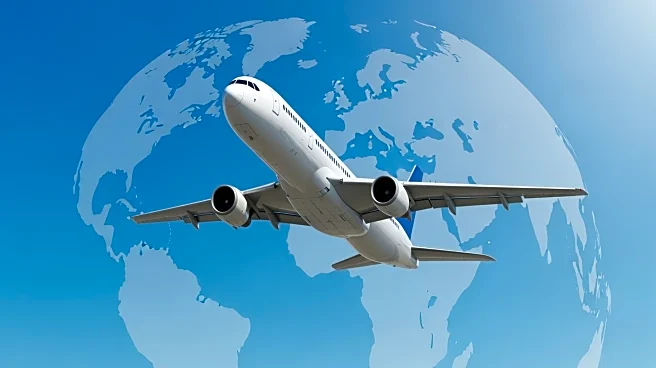What's Happening?
Chinese airlines have formally requested the U.S. Department of Transportation (DOT) to reconsider its proposal to ban flights through Russian airspace on routes to and from the U.S. The airlines, including
Air China, China Eastern Airlines, and others, argue that the restriction would negatively impact passengers and operations by increasing flight times and costs. The DOT's proposal aims to address competitive disparities that arose after Russia closed its airspace to U.S. and Western carriers following its invasion of Ukraine. Chinese airlines, unaffected by this closure, have continued using Russian airspace for some long-haul services. The proposed ban would apply to passenger and combination flights but not to all-cargo carriers. The immediate impact is expected to be modest, affecting only four of 18 nonstop U.S.-China routes currently using Russian airspace.
Why It's Important?
The proposed ban could significantly affect U.S.-China air travel, potentially increasing costs and flight durations for passengers. This move by the DOT is seen as an attempt to level the playing field for U.S. carriers, who have been at a competitive disadvantage due to the Russian airspace closure. If implemented, the ban could disrupt air service recovery between the two countries, which remains below pre-pandemic levels. The decision also highlights ongoing geopolitical tensions and their impact on international travel and trade. U.S. carriers and industry groups support the DOT's stance, citing unfair advantages gained by Chinese airlines through shorter and cheaper routes.
What's Next?
If the restriction is finalized, affected airlines will have a 30-day wind-down period to adjust their operations. The DOT's decision could lead to further diplomatic discussions between the U.S. and China, as airlines seek to mitigate the impact on passengers and operations. The policy could also be expanded to include other foreign carriers, increasing its scope and potential consequences. Airlines are likely to continue lobbying for more time and consideration in responding to the proposed changes.
Beyond the Headlines
The ban raises questions about the balance between competitive fairness and international cooperation in aviation. It also underscores the broader implications of geopolitical conflicts on global travel and commerce. The situation may prompt discussions on alternative routes and strategies for airlines to maintain service efficiency and passenger satisfaction.









